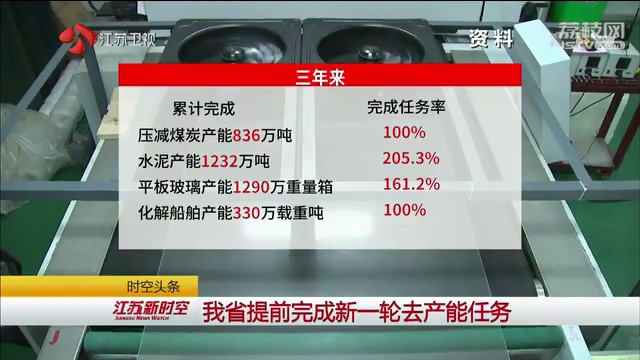East China’s Jiangsu province has reached its three-year target of phasing out excess industrial capacity in its new round of supply-side structural reform by more than one month ahead of schedule.
The new round of de-capacity tasks of coal, cement, flat glass and shipbuilding sectors have been completed ahead of schedule as Farun Glass Industry Co., Ltd., Jiangsu Tianshan Cement Group Co., Ltd. Hushan Branch and Jiangsu United Cement Co., Ltd. achieved their goals of retiring excess production capacity by measuring up to the assessment of the Provincial Department of Industry and Information Technology last Tuesday and Wednesday.
According to the national 13th Five-Year plan goals for coal de-capacity, Jiangsu prioritized cement, flat glass and shipbuilding as the key industrial sectors to retire excess capacity by drafting a three-year action plan and defining capacity-reduction indicators.
The retiring of production capacity for shipbuilding, coal and cement and flat glass was completed in 2016, 2017 and 2018 respectively.
By highlighting de-capacity in its supply-side structural reform, Jiangsu has reported improving performances in the benefits of relevant key industries. In 2017, the province's coal industry profit increased by 229%, embarking on a sound development track. In the future, the province will target the adjustment of industrial layout, technological transformation, mergers and acquisitions, to further eliminate backward production capacity, accelerate technological transformation, and promote the high-quality development of related industries.
Retiring excess industrial capacity is at the top of the government’s working agenda. While addressing the G20 summit in Hangzhou in September in 2016, President Xi Jinping said that China’s plan to cut excess capacity in the coal and steel sectors was based on China’s long-term growth plans, adding, “China has gone to the greatest lengths in its efforts to cut industrial overcapacity, and we will fulfill our promises.”
Measures that have enabled such changes include shutting down small-scale and inefficient coal and steel producers and punishing illegal practices. Local governments have also placed strict controls on adding any new capacity, and local officials who break the rules are being held accountable.







